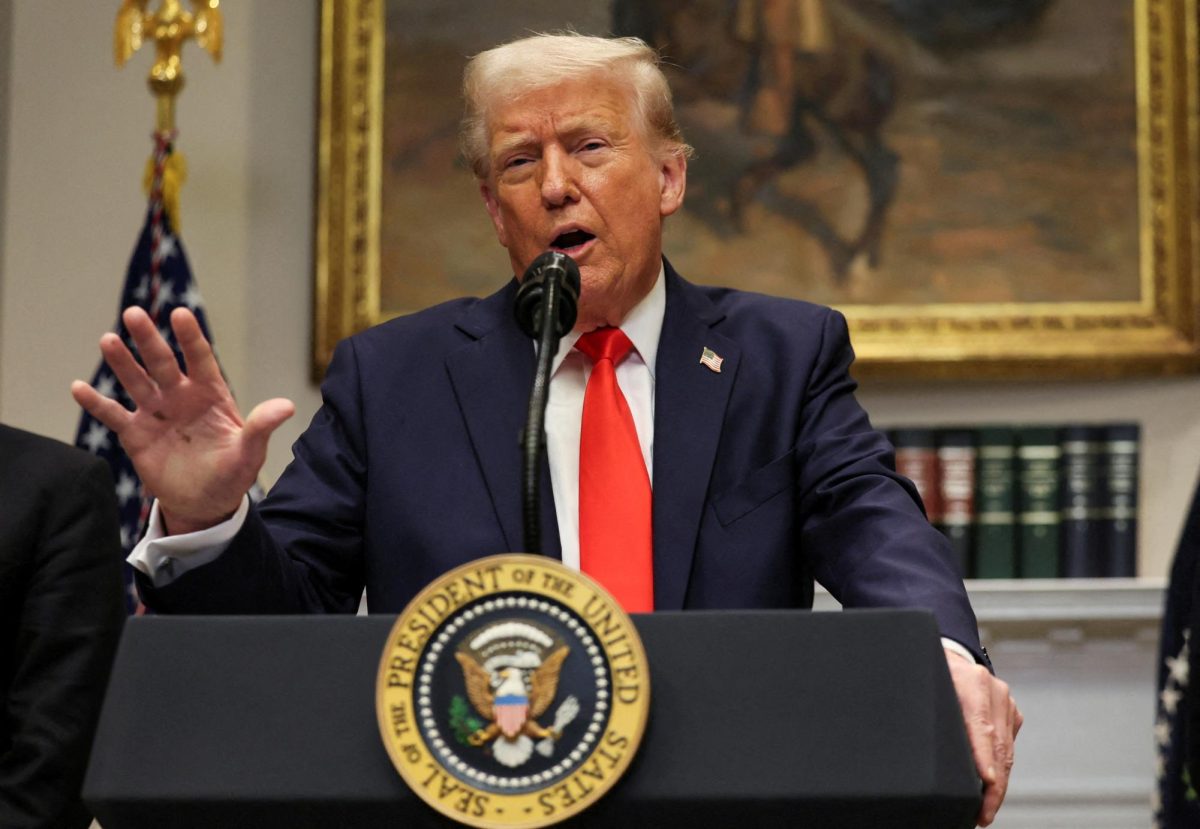Ignoring the voices of scientists has been a pattern in the recent Administration’s actions, and the climate crisis is no exception. Instead of advancing solutions to the crisis, recent rollbacks show a disregard for environmental science and public health, all while promoting fossil fuels as a short-term economic fix. The consequences will land on us, the generation that will inherit both the climate and the economy shaped by these decisions.
What’s the change in policy?
In June, the Environmental Protection Agency (EPA), under the Trump administration, began proposing to repeal greenhouse gas standards established by the Biden administration. House Energy and Commerce Chairman Brett Guthrie, along with various republican congressmen, made the following remarks.
“These Biden-era regulations have imposed massive costs on coal-, oil-, and gas-fired power plants, raising the cost of living for American families, imperiling the reliability of our electric grid, and limiting American energy prosperity,” Guthrie said.
This is accomplished with disregard for environmental concerns, as according to Hart-Curran and Jenks from Harvard Law School’s Environmental & Energy Law Program, the EPA’s actions are not factually centered around scientific reality.
“The proposal does not discuss the public health impacts of allowing units to emit at the higher emission rate,” Hart-Curran said. “Additionally, the proposed repeal does not offer any alternative regulatory approaches, as is required when an agency ‘rescinds a prior policy.’”
It then becomes clear that the focus of the EPA’s policy shift strongly opposes the previous administration while prioritizing short-term economic benefits.
More recently, on Aug. 29, U.S. Transportation Secretary Sean P. Duffy withdrew funding from 12 offshore wind projects, totaling $679 million worth of funds.
California Rep. Jared Huffman condemned Duffy’s action, stating, “[This administration has] a stubborn and mystifying hatred of clean energy. It’s so dogmatic. They are willing to eliminate thousands of jobs and an entire sector that can bring cheap, reliable power to American consumers.”
Why should students care?
Environmental Science teacher Ava Hughes gives more insight into the relevance of climate change for everyday students.
“You should care because [America’s] behind…It is one of those situations where eventually we will run out of fossil fuels, not this generation, but in the next few, it is a high possibility,” Hughes said. “So if we don’t have something else to be able to create electricity, then the world and what we’ve developed as of right now would have to change.”
Time is running out, and climate change and energy insecurities show no signs of slowing. Increasingly frequent natural disasters, such as California wildfires and floods in Asia, coupled with rising global temperatures, are symptoms of a man-made disease, while dwindling fossil fuels threaten our energy supply. Without the willingness to find a cure, the Earth will suffocate along with the comforts of society—a weight which will burden future generations.

What can we as students do?
Energy policy may seem out of reach, as economists, scientists and lawmakers shape it. But students still play a role—and the first step is clearing up misconceptions—the most common of which is the definition of “sustainable” energy.
“Biomass electricity [such as burning trees] is technically renewable. However, it releases a lot of pollution, so it’s not necessarily a good thing,” Hughes said. “There’s a lot of misconceptions about what is green, and part of that is how it’s presented in the media.”
These misconceptions make conversations about climate difficult. In a recent poll conducted by Associate Professor of Communication from Kansas University Hong Tien Vu on families, respondents admitted that they couldn’t discuss the subject of climate change without receiving “weird look[s].”
But small actions matter. Talking with family, reading reliable sources and contacting your government representatives will add up to the fight against misinformation and government indifference.
“The world’s a very big and complicated place, and its problems are too, so it has to do with your interest in wanting to do something better in that sector,” Hughes said. “And as soon as we get more people in that boat, then it’ll be a lot easier to make big national changes.”













